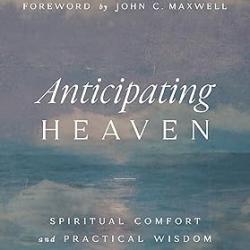This post is part of a series walking through the second volume of Abraham Kuyper’s Common Grace.
The strength of sin from our nature depends in part on
- our family tree
- our parents
- our upbringing
- our environment
- and in this chapter, “our vocation and our lot in life” (257.
These are all part of common grace, so here we are ignoring their involvement in particular grace.
We don’t all get to choose our vocation, though we all have one in the “narrower sense” of “daily recurring obligation to perform work.” (258) Culturally we narrow this down to mean just our job, but this is a mistake. In reality even the unemployed have a vacation that must be pursued. That’s not to say we all have the same vocation, though we must all do some of the same things daily (eat, sleep, etc). There is a “great diversity” of functions, as well as a variety on the moral side in terms of resisting temptations for some and providing greater temptations in others. Of course we should doubly resist the temptations that come with our vocation–yet the reverse often happens and our vocations become a hindrance to our maturity.
God distributes vocations, even for those of us who get to pick them. If in our vocation we resist sin and pursue virtue, then our vocation is “a means to cause common grace.” (259-260) Work proper is clearly central to this, and one of the best means of resisting sin. Some are better at this than others, with more or fewer temptations involved in their job. This too is a mystery for which we must worship God.
The same is true re: our “lot in life.” Rural vs urban; which nation we’re born into; rich vs poor; etc. All of these “affect our moral development.” (262-263) We cannot deny the impact–even though it varies greatly in tis effects. God is sovereign over all of this as well in His common grace.
An important point here: this moral shaping does not ≠ salvation, though observation can seem to suggest that most believers are strongly influenced by common grace. Someone being converted out of a deep pit of sin does happen, but is much rarer than the conversions of those raised in the faith, in stable homes, etc. Nor should we systematize such great conversion narratives and expect them of everyone:
The path through reaction [to ‘great’ sins] may be more remarkable to us and may demonstrate even more miraculously the omnipotence of God’s grace than the path accompanied by a soft breeze, yet it is neither the most common nor the most familiar one. The most common and familiar path our God uses to bring his elect to salvation relates to the preceding working of his common grace. It is a common grace through which God reins in, tames, and restrains the evil nature in the life prior to conversion so that no strong reaction can set in, indeed, such that many who look back at their past and relive their past life still pray that they may discover the moment when their transition took place. (264)
Dr. Coyle Neal is co-host of the City of Man Podcast and an Associate Professor of Political Science at Southwest Baptist University in Bolivar, MO













